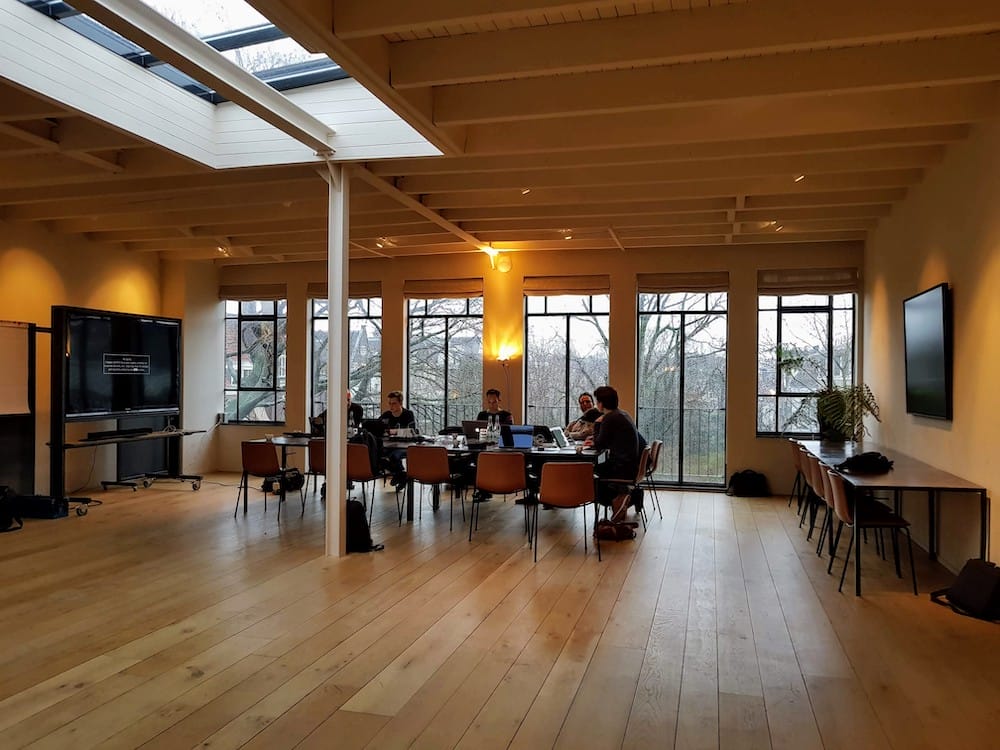Last week, we ended the year with a 7-day challenge to strengthen our knowledge of Deep Learning.
Using the fast.ai training as our foundation, 18 of us – data scientists and data engineers, got our hands dirty, applying cutting-edge technologies to further our understanding.
After all that, what did we learn?
Well, fast.ai is an excellent option if you want to start from the ground up and/or you just want to know what works without diving too deep into the why. You can teach someone how something works, but unless they understand the ‘why,’ they’ll never become an expert. As such, we decided to pivot our approach, using our own Deep Learning curriculum as a new foundation. As each of us have their own way of learning, we also found that forming groups for practical exercises and lectures worked really well. We went so far as to implement some of these takeaways in our own course offerings, but there’s more on that below.


Nothing Beats Unrestrained but Focused Learning
As mentioned in our previous blog, we’re given plenty of encouragement and time at GoDataDriven to continue on our learning journeys, and we apply that knowledge every day with our clients, but studying in this manner was something else.
The last time most of us had this freedom to learn was during our days in academia.
It was a throwback that we all enjoyed, and I found that having the time to really understand and discuss made upskilling fun and efficient.
There is no Fixed Path for Learning
Our intent was to cover all of the fast.ai material in 7 days, but that didn’t really work out as planned.
We found that the course didn’t go fast enough for most of us, and started out on quite a conceptual level. We’re all practitioners who spend our time applying what we learn as we go, and so abstracted details and things that worked without us understanding exactly why were dealbreakers as far as we were concerned.
However, we didn’t let that deter us. We were committed to levelling up our Deep Learning skills, so instead decided to cram GoDataDriven’s own Deep Learning training in two morning sessions. In addition, we formed study-groups on a daily basis to align with how each of us best digested information.
Some liked watching the lectures, others used them as inspiration for new problems, and others hacked their own Deep Learning projects.
When you give a group of self-motivated peers free time and space to learn, it’s not hard to stay busy!
Getting Your Hands Dirty is Key
Hands-on exercises are an important part of our own training sessions, but the best thing was applying these new techniques to our client’s cases.
Ivo formed a team to classify blood pressure signals with conv nets; Marcel had a named-entity recognition problem that Stijn solved with AllenNLP; and Vincent used PyTorch to generate faces of possible new colleagues… and this is only a selection of the things we did!
Diversity Makes Learning so Much Faster and More Thorough
The level of knowledge and experience of the attendees was really diverse at the start of the week.
There were experts with relevant academic degrees and hands-on experience, as well as people who were completely new to the field.
We found this to be a benefit, in that having an expert next to you enables you to learn so much faster, while an expert really needs to deepen their knowledge to answer the fresh perspective of a newcomer.
We are consultants and trainers for a reason.
Going Deeper Next Year!
All in all, these seven days were a great success, and we’re looking forward to doing this again in the coming year.
We spread our Deep Learning knowledge throughout our organisation; adopted the latest and greatest techniques; expanded our course material; learned a few new frameworks like PyTorch and AllenNLP; and are now experiencing a lot less Deep Learning FOMO!
Final Takeaways
We are thankful to fast.ai for being the impetus behind this challenge. We were driven to do as much as we could with Deep Learning in a short period of time and learned a lot about how we like to study and retain information. As a result, we’ve been able to use this insight to improve our own curriculum.
So, have you caught the Deep Learning bug? Are you a newbie in the space, and interested in gaining applied knowledge from skilled practitioners? We have a Deep Learning course that we offer at our Academy, coming up on 11-13th February 2019. Check Check out more information here!




